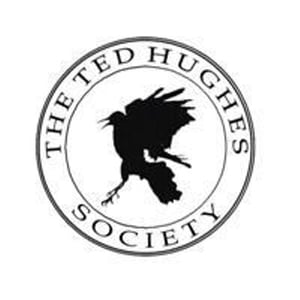Prose by Ted Hughes
Winter Pollen: Occasional Prose (London: Faber and Faber, 1994)
Terry Gifford (Visiting Professor at the Department of English, Bath Spa University, and Professor Honorario, Filologia Inglesa, Universidad de Alicante, Spain) introduces Hughes's selection of 'occasional prose'.
Winter Pollen (1994) is a selection of the prose essays, criticism, introductions and reviews by Hughes that include some essential items for readers of his other works. Hughes’s approach to writing for children is best understood through ‘Myth and Education’. ‘Capturing Animals’ defines his early uses of animals in relation to people, the imagination and his poetic practice. ‘The Environmental Revolution’ is a remarkably early distillation of his growing environmentalism. Rather than plough through Shakespeare and the Goddess of Complete Being, the curious student can get the essence of this book from ‘The Great Theme: Notes on Shakespeare’. And the essays on Plath’s work have now to be read as the background to the early development of Birthday Letters.
But the bulk of this collection of essays represents serious and detailed readings of the work of other poets. Winter Pollen is arranged roughly chronologically, but in the last two essays, which are published here for the first time, Hughes undertakes a journey through English poetry which leads to remarkable revelations about the place of his own poetry within poetic history. What this journey really amounts to is a reflection on Hughes’s own poetic project and its position within the historical dynamics of English poetry.
The first of these long essays is titled ‘Myths, Metres, Rhythms’ and it takes its starting point in reflections on two failures by other poets to understand particular poems by Hughes. The essay then turns towards a more extensive, but equally lucid, explanation of ‘the rhythms that give musical expression’ to mythologies of meaning in language. There are, Hughes suggests, two ‘musical traditions’ in English poetry. The first is that of a regular metre, often associated with rhyming poetry, and his example from Addison combines both. But he then goes on to show how what he calls ‘the natural qualities’ of words used in ordinary speech can give free verse a conventional rhythm that enables it to be ‘sight-read straight-off’. The importance of all this is that a modern reader ‘is accustomed to reading almost all verse in casual, conversational style, as if it were metrically simple […] as if it were a line of “free verse”’ (364), thus missing the effects upon meaning of the original rhythms. For Hughes, the music, like the mythos, is ultimately attempting to communicate a subtle and lived experience of an actuality.
In a rather remarkable ‘Postcript’, Hughes gives a rapid overview of the history of English poetry in terms of an uneasy marriage ‘in which the old or unorthodox tradition is the bride and the new, metrically strict orthodox tradition the groom’ (369). This becomes particularly evident in his essay on Coleridge’s poetic journey, ‘The Snake in the Oak’, where Hughes is at his most explicit about the sanity-threatening shamanic call and its difficult negotiations with the Goddess in her various forms that produces the healing effect of the poetry. Any reader of Hughes’s poetry who wants to understand his poetic quest and the central role of the female figures in that poetry will find a full account of its dangers and enlightenments in what Hughes writes about Coleridge’s brief acceptance of the poetic call and its ultimate rejection with disastrous consequences. Quite apart from the detail of the scholarship in this essay, the passion and subtle understanding evident in this brilliant account of a poetic journey indicates that Hughes knew from personal experience, and a life-time’s study of shamanic practice, that Coleridge’s engagements with the Goddess shared much with his own more conscious quest. As his final long prose reflection on the roots of his key poetic elements, this essay has the weight of a final statement of his own inner creative trajectory. After reading this essay it becomes clear why Hughes had to publish both Birthday Letters and Capriccio, his final accounts of negotiations with female figures.
Terry Gifford is a Visiting Professor at the Centre for Writing and Environment, Bath Spa University and Professor Honorario, Filologia Inglesa, Universidad de Alicante, Spain. A leading voice in eco-criticism, he is the co-author of Ted Hughes: A Critical Study (Faber, 1981), author of Ted Hughes (Routledge 2008) and editor of The Cambridge Companion to Ted Hughes (Cambridge UP, 2011).
